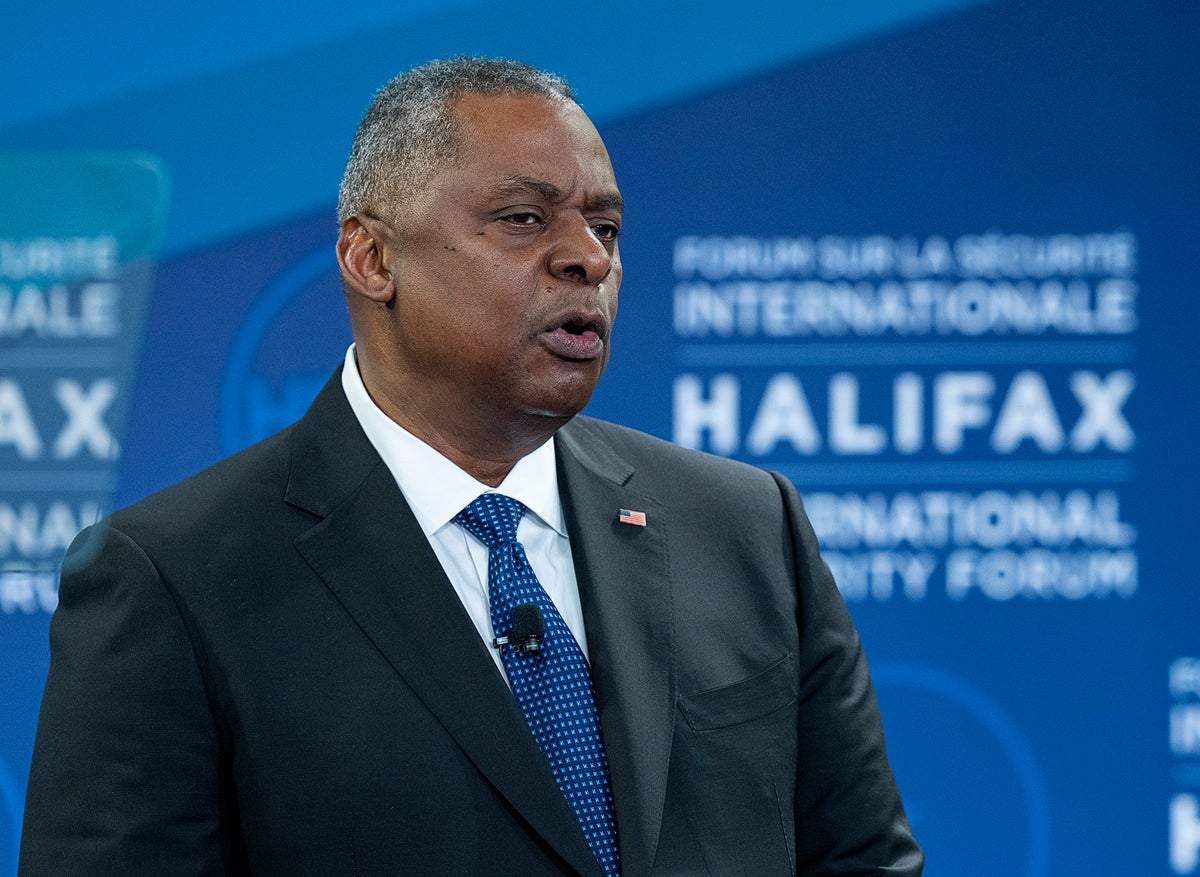
U.S. Defense Secretary Lloyd Austin said Saturday the deadly missile explosion in Poland this week is a consequence of Russian President Vladimir Putin's “war of choice” against Ukraine, and said international stability and prosperity are at stake in the conflict.
Austin made the remarks at the annual Halifax International Security Forum which attracts defense and security officials from Western democracies.
“The tragic and troubling explosion in Poland this week reminded the whole world of the recklessness of Putin’s war of choice,” Austin said.
On Tuesday, two workers were killed when a projectile hit the grain-drying facility close to Poland's border with Ukraine. While the source of the missile is under investigation, NATO officials have said they suspect it was fired from a Ukrainian missile battery.
Officials from Poland, NATO and the United States have blamed Russia for the deaths in any case, saying a Ukrainian missile would not have misfired had the country not been forced to defend itself against heavy Russian attacks that day.
Russian officials have cast the conflict as a struggle against NATO — though Ukraine is not a NATO member even if it has been receiving aid from NATO member states.
Austin said NATO is a defensive alliance and poses no threat to Russia.
“Make no mistake: we will not be dragged into Putin’s war of choice. But we will stand by Ukraine as it fights to defend itself. And we will defend every inch of NATO territory,” Austin said.
A Polish investigation to determine the source of the missile and the circumstances of the explosion was launched with support from the U.S. and Ukrainian investigators joined the probe on Friday.
Andriy Yermak, head of the Office of the President of Ukraine, said in an interview broadcast live at the forum that “It’s not right to say it’s a Ukrainian rocket, or a Russian rocket, before the investigation is over.”
Austin called Putin’s invasion the worst crisis in security since the end of the Second World War and said the outcome "will help determine the course of global security in this young century,” Austin said.
“Stability and prosperity on both sides of the Atlantic are at stake. The U.S. trading relationship with the European Union is the largest in the world. So when an aggressor manufactures a huge security crisis in Europe, it hits home for everyday Americans and Canadians.”
Austin said the U.S. has deployed or extended more than 20,000 additional U.S. forces to Europe since late February, bringing the total to more than 100,000 American service members across Europe.
“Russia isn’t just waging a war of aggression. It’s also deliberately attacking civilian targets and civilian infrastructure — targets with no military purpose whatsoever. Now, these aren’t just lapses. These aren’t exceptions to the rule. These are atrocities,” Austin said.
He added that the war "shows the whole world the dangers of disorder. That’s the security challenge that we face. It’s urgent, and it’s historic.
But we’re going to meet it ... the basic principles of democracy are under siege around the world,” he said.
He dismissed Putin's claims that “modern Ukraine was entirely created by Russia,” calling it a vision of “a world in which autocrats decide which countries are real and which countries can be snuffed out.”
He drew comparison to China's increasing military activities in the Taiwan Strait.
“Beijing, like Moscow, seeks a world where might makes right, where disputes are resolved by force, and where autocrats can stamp out the flame of freedom,” he said.
In its 14th year, about 300 people gather each year at Halifax International Security Forum held at Halifax’s Westin hotel, where about 13 Ukrainian refugees now work.







